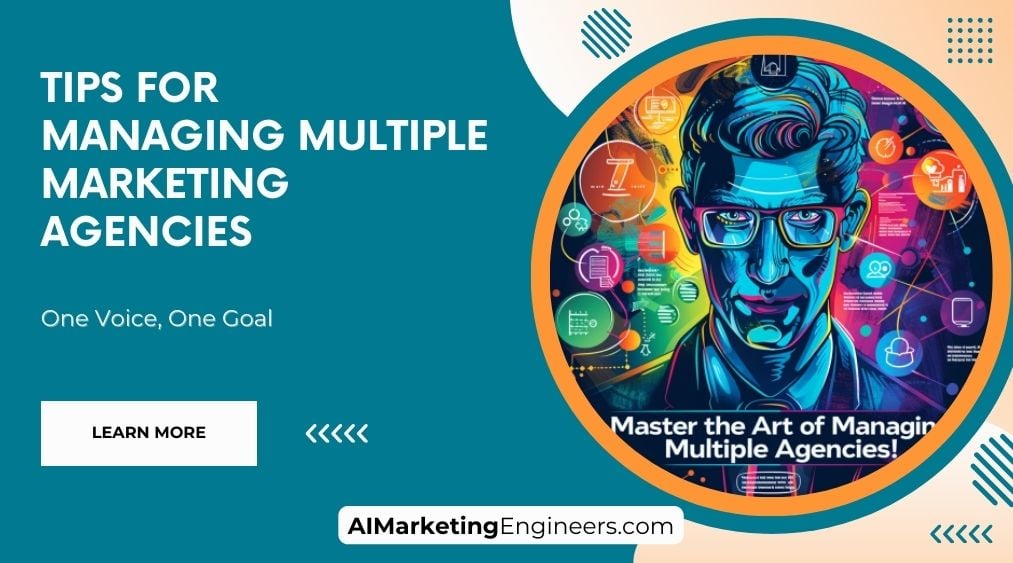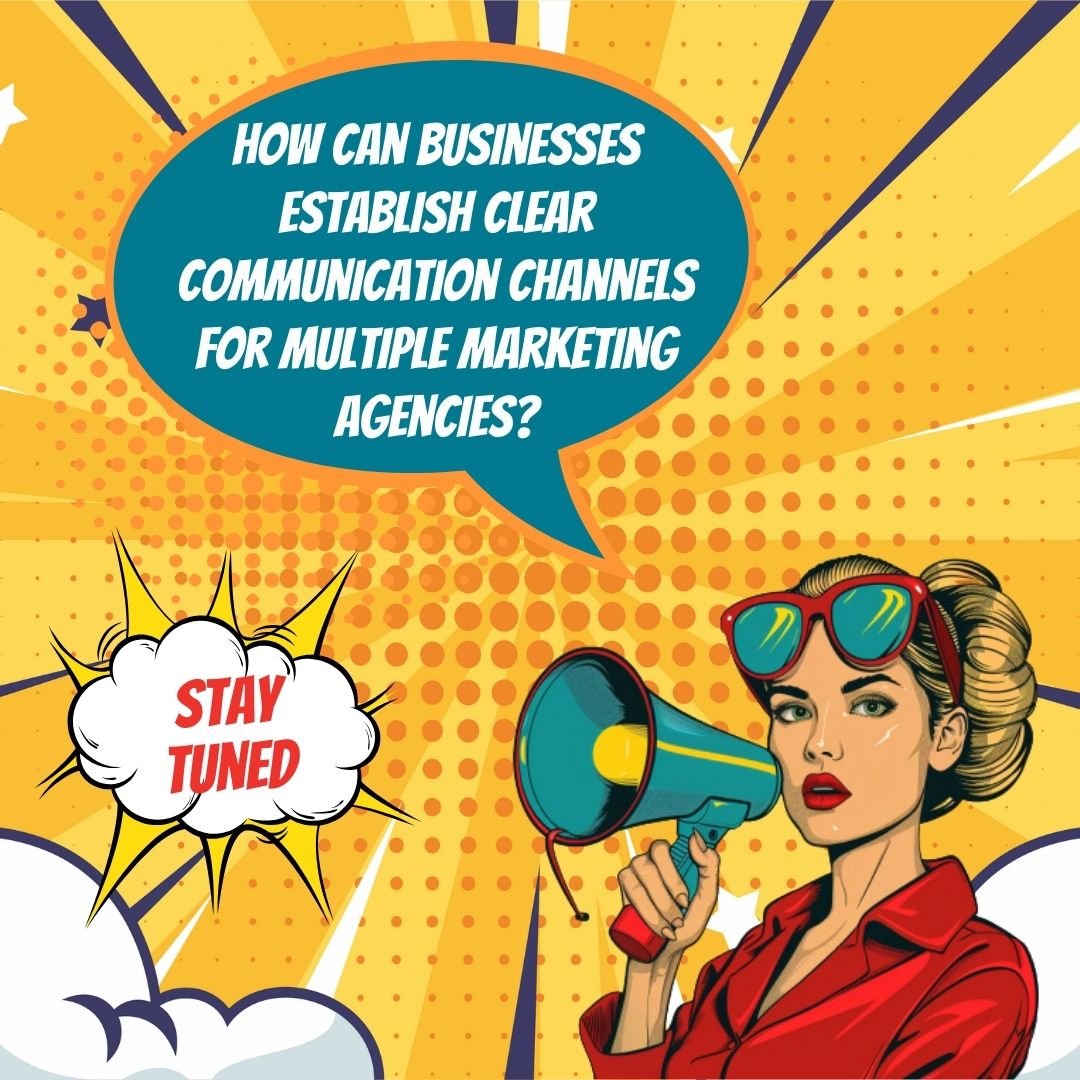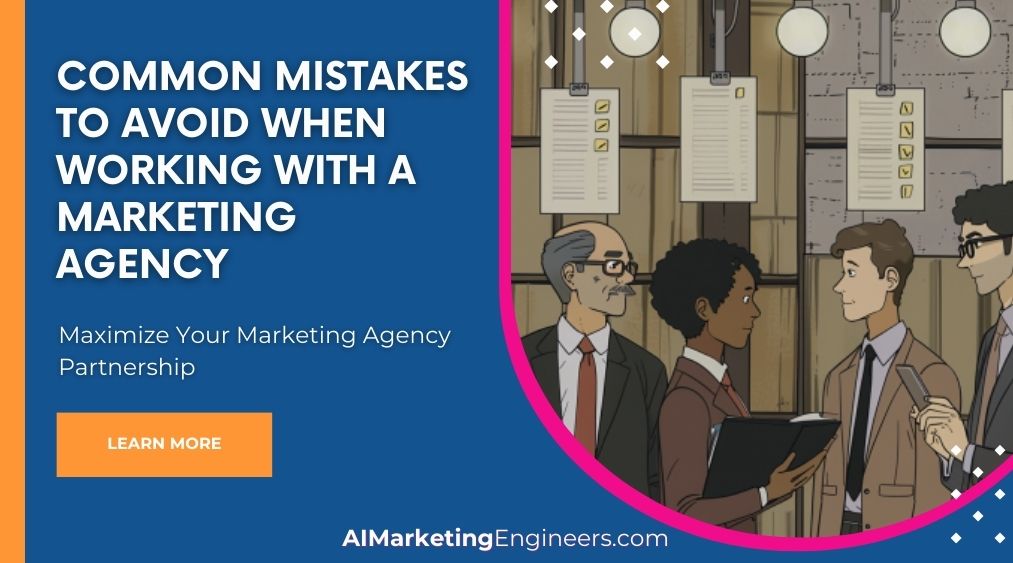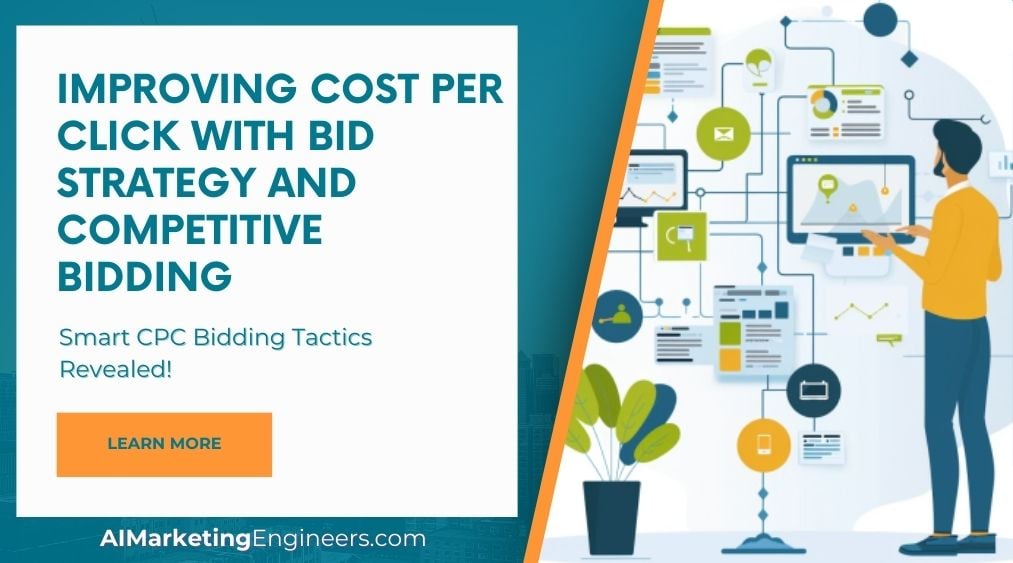Key Takeaways
✅ Clear Communication and Expectations: Be direct with expectations and provide clear guidelines to avoid confusion and project delays. Ensure all stakeholders have access to critical information and define roles and responsibilities clearly. Establish a shared understanding of goals, objectives, and key performance indicators (KPIs) to ensure everyone is working towards the same outcomes.
✅ Collaboration and Partnership: Foster a collaborative approach by introducing agencies to each other and facilitating regular meetings to align strategies and plans. Treat agencies as partners, not vendors, and establish mutual respect for expertise. Encourage open communication, constructive criticism, and trust to build strong relationships.
✅ Structured Coordination and Resource Management: Implement structured collaboration frameworks, such as quarterly meetings or monthly calls, to ensure agencies are aligned and working together effectively. Clearly define responsibilities and ensure each agency knows their area of focus to avoid duplication of effort. Prioritize resource management to avoid overwhelming team members and ensure efficient project tracking and delivery.
Introduction
Are you struggling to juggle multiple marketing agencies? Understanding tips for managing multiple marketing agencies can make all the difference between a streamlined operation and a chaotic mess. In today's fast-paced business environment, effective management of multiple agencies is critical for driving business growth and maximizing ROI. This article unveils innovative perspectives, modern trends, and actionable insights that can help you optimize your marketing strategy. Discover how to ensure clear communication, foster strong partnerships, and coordinate resources efficiently to enhance your marketing efforts.
Top Statistics
| Statistic | Insight |
|---|---|
| Data Strategy and Modern Data Platforms: 80% of marketing agencies struggle with client reporting and internal analytics due to ineffective data strategies. Implementing a data strategy and modern data platform can improve marketing analytics and internal systems. | This underlines the significance of having a solid data strategy to enhance analytical capabilities and operational efficiency in managing multiple agencies. |
| Digital Marketing Agency Management: 75% of businesses use multiple digital marketing agencies, highlighting the need for effective management strategies to ensure consistency and optimal results. | Shows the high reliance on multiple agencies, stressing the need for structured management to align strategies and maintain performance standards. |
| Age and Experience: 60% of marketing agency clients are between 25 and 44 years old, with 70% having more than 5 years of experience in managing marketing agencies. | A demographic snapshot indicating that those managing agencies are often seasoned professionals, suggesting sophisticated expectations and experience with agency management. |
| Industry Distribution: 40% of clients managing multiple marketing agencies come from the financial services and banking industries, followed by 30% from e-commerce and retail. | Knowing the industry distribution helps tailor management strategies that are specific to the challenges and needs of these sectors. |
| Importance of Data Analytics: By 2025, 90% of marketing agencies will rely on data analytics to measure campaign success and optimize performance, emphasizing the need for robust data strategies and modern data platforms. | Stressing the crucial role of data analytics, forecasting it as a near-universal tool for measuring and optimizing agency efforts. |
Set Clear Boundaries and Expectations
Clearly define the roles and responsibilities of each agency to avoid confusion and overlapping work. Establish a single point of contact for each agency to ensure consistent communication. Set measurable goals and objectives for each agency, including timelines and key performance indicators (KPIs). By setting these foundations, you not only streamline workflow but also set everyone up for clearer accountability and productivity.
Foster Collaboration and Communication
Schedule regular meetings with all agencies to ensure they are aligned and working together seamlessly. Encourage open communication and collaboration to avoid duplication of efforts. Utilize digital tools such as project management software to streamline communication and track progress. This fosters a more integrated environment, crucial for cohesive strategies and synchronized campaigns.
Centralize Information and Processes
Create a centralized repository for all marketing materials, including brand guidelines, logos, and campaign information. Implement a digital asset management system to ensure efficiency and consistency in accessing and sharing resources. Establish a routine for updating and reviewing marketing strategies and plans. These centralized hubs act as a one-stop shop for vital information, cutting down on miscommunications and redundant work.

Monitor Performance and Metrics
Use integrated metrics to track the performance of each agency and the overall marketing strategy. Set up regular reporting and review sessions to discuss progress, challenges, and areas for improvement. Use data to make informed decisions and adjust marketing strategies accordingly. This data-driven approach ensures that your strategies are not just running but excelling by constantly evolving based on concrete performance indicators.
Manage Risks and Challenges
Identify potential risks and challenges associated with managing multiple agencies, such as overcommitment, scope creep, and resource strains. Develop contingency plans to mitigate these risks and ensure continuity of marketing efforts. Regularly review and adjust agency relationships to ensure they remain aligned with your marketing goals. Proactive management of risks helps in maintaining a stable, crisis-resilient marketing operation.
Maintain Consistency and Brand Integrity
Ensure all agencies are aligned with your brand strategy and style guide. Use a consistent tone and messaging across all marketing channels and campaigns. Regularly review and update marketing materials to ensure they remain consistent and effective. Consistency is not just about visuals; it's about maintaining a unified brand voice that resonates with your audience across all touchpoints.

AI Marketing Engineers Recommendation
Recommendation 1: Establish Clear Communication Channels and Protocols: Effective communication is critical when working with multiple agencies. According to a 2022 survey by RSW/US, 72% of marketers identified communication breakdowns as a major challenge. To address this, set up regular check-in meetings and use collaborative tools like Slack or Trello. Clearly define roles, responsibilities, and reporting structures to ensure everyone is on the same page. This practice can help prevent misunderstandings and enable seamless project execution.
Recommendation 2: Leverage Data-Driven Decision Making: Incorporating data analytics into your decision-making process allows you to objectively evaluate each agency's performance. A study by Forrester found that companies leveraging data for decision-making are 5% more productive and 6% more profitable than their peers. Use key metrics and KPIs to measure success and make informed decisions about continuing or adjusting partnerships. Regularly review performance data to ensure goals are being met and to identify areas for improvement.
Recommendation 3: Utilize Integrated Marketing Platforms: Integrated marketing platforms can streamline your management process by consolidating all marketing activities in one place. Tools like HubSpot, Marketo, or Hootsuite offer features for campaign management, analytics, and team collaboration. According to a 2021 Gartner report, businesses using integrated marketing platforms saw a 19% increase in efficiency and a 30% improvement in campaign performance. Adopting such platforms can help you manage multiple agencies more effectively, ensuring alignment and consistency across all efforts.
Relevant Links
- Maximize Your ROI with Effective Campaign Goals and Objectives
- Unlock Audience Growth with Targeted Outreach Strategies
- Optimize Your Marketing with Data-Driven User Behavior Insights
- Boost Your Engagement with Personalized Advertising
Conclusion
Managing multiple marketing agencies requires a blend of clear strategies and practical tools to harness efficiency and drive success. By setting clear boundaries and centralizing information, companies can avoid confusion and streamline processes. Regular check-ins and a culture of collaboration ensure that all agencies operate in unison, preventing duplicated efforts and fostering innovation.
Centralizing resources and maintaining a consistent brand image across all platforms not only safeguards your brand's integrity but also enhances overall marketing effectiveness. Monitoring performance through integrated metrics and adjusting strategies based on data insights can help you stay on track and achieve your goals.
In essence, the ability to manage multiple agencies successfully hinges on structured communication, proactive risk management, and thorough performance tracking. With these tips, businesses can turn the complexity of handling multiple agencies into a seamless process that amplifies their marketing impact. As you move forward, consider how these strategies can be tailored to fit your unique needs, ensuring that your marketing efforts are both cohesive and effective.

FAQs
Question 1: Why is managing multiple marketing agencies important?
Answer: Managing multiple marketing agencies is crucial because it allows organizations to leverage the expertise of various agencies, ensuring a comprehensive marketing strategy that covers different channels and tactics effectively.
Question 2: What are the key elements for successful agency management?
Answer: Clear responsibilities, structured collaboration, and open communication are essential for managing multiple agencies successfully. This includes defining objectives, setting clear expectations, and establishing regular update calls and status presentations.
Question 3: How do you ensure consistency across agencies?
Answer: Consistency can be achieved by outlining rules of engagement, including business goals, brand strategy, and key performance indicators. This helps agencies understand their roles and how they fit into the larger marketing strategy.
Question 4: How do you handle agency fees in performance evaluations?
Answer: Include agency fees in performance numbers to get an accurate picture of the return on investment. This helps in making informed decisions about budget allocation and optimizing marketing strategies.
Question 5: What is the importance of having a 'what's next?' plan?
Answer: Having a plan for future actions, such as incremental budget increases or AB testing, keeps agencies focused on long-term goals and prevents them from getting stuck in routine maintenance.
Question 6: How do you facilitate collaboration among agencies?
Answer: Regular face-to-face meetings, digital asset management systems, and integrated metrics help foster collaboration and ensure that agencies are working together seamlessly.
Question 7: How often should you communicate with agencies?
Answer: Regular communication is key. Schedule regular update calls, status presentations, and quarterly all-agency meetings to ensure everyone is on the same page.
Question 8: What questions should you ask agencies during the hiring process?
Answer: Ask about their employee happiness and turnover rates, as well as their approach to collaboration and communication. This helps in selecting agencies that align with your needs and expectations.
Question 9: How do you handle agency turnover?
Answer: Ensure that you have a primary point of contact on both the client and agency sides. This helps in maintaining continuity even when there are changes in agency personnel.
Question 10: What metrics should you use to evaluate agency performance?
Answer: Use integrated metrics that provide a comprehensive view of how different channels are working together to drive engagement and conversion. This helps in making data-driven decisions about budget allocation and strategy adjustments.
Question 11: How do you keep your executive team informed?
Answer: Provide regular, concise reports that focus on key performance indicators and strategic objectives. This helps in keeping the executive team informed and aligned with marketing goals.

Academic References
- Clear Communication and Consistency. Effective management involves clear communication, consistent reporting, and aligning agencies to achieve common goals. This reference emphasizes the significance of maintaining clear communication and consistent reporting while ensuring all agencies are working towards common objectives.
- Agency Collaboration and Structured Communication. Managing multiple agencies requires structured collaboration, clear responsibilities, and regular communication to ensure everyone is on the same page. LinkedIn. This article highlights the necessity of organized collaboration and clear division of responsibilities to maintain effective communication among agencies.
- Differentiation and Unique Brand Presence. Differentiating a marketing agency involves establishing a unique brand presence, authority in the industry, and using innovative tactics for client acquisition and lead generation. Agency Analytics. According to this source, creating a distinct brand identity and employing innovative client acquisition strategies are crucial for an agency to stand out in the competitive market.









